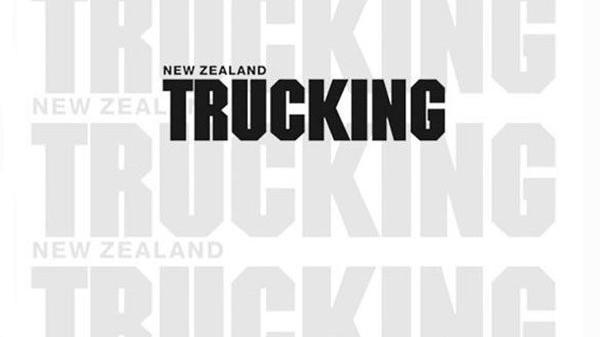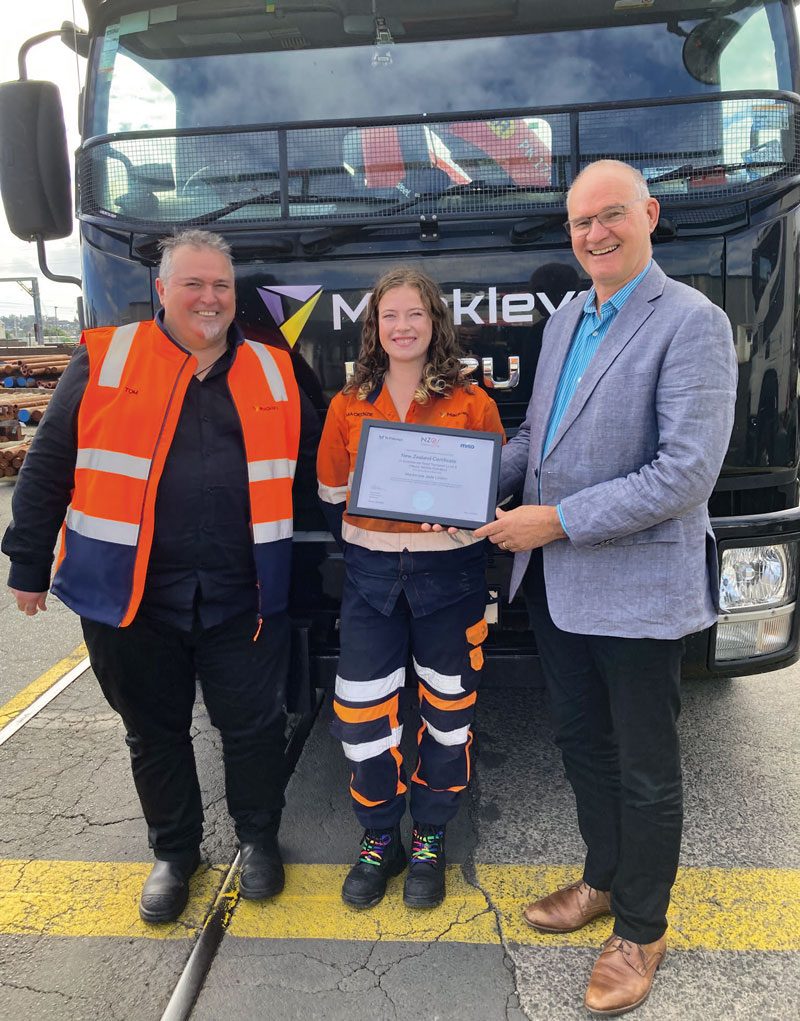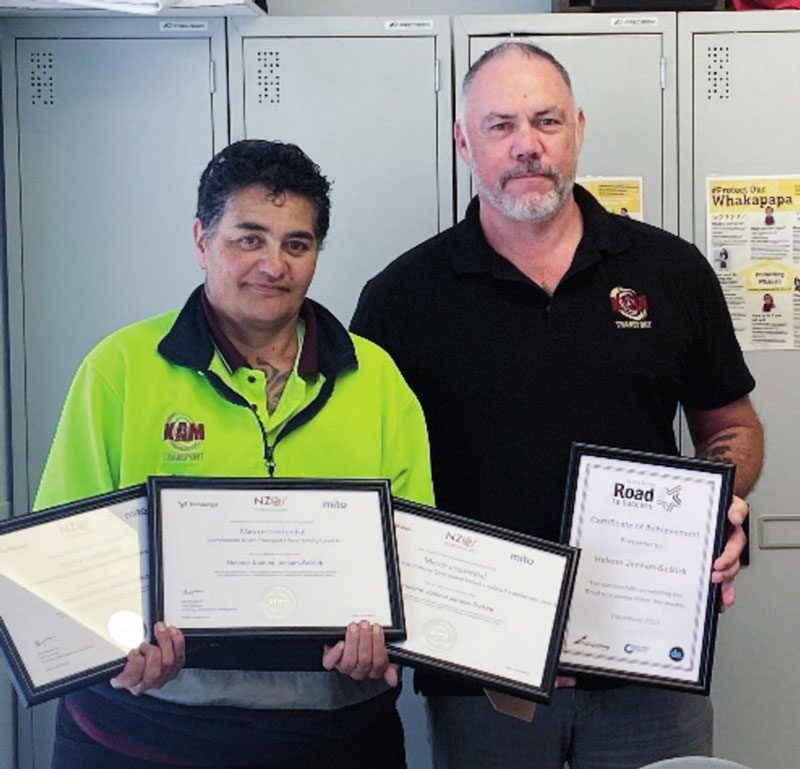
While the global trucking industry grapples with an ageing driver pool and a shortage of new talent, New Zealand operators are proactively tackling the problem and reaping the benefits.
The Road to success traineeship aims to place transport industry newcomers in jobs where they can learn as they work, achieve recognised tertiary qualifications and, ultimately, gain a foothold in the industry. Similarly, it offers those already in the industry an opportunity to further their career.
For employers, the boost to their talent pool means a boost to the industry as well. We spoke to Bill Bamber, general manager at KAM Transport, Peter Danillo, North Island transport manager at Mackleys, and Murray Young, general manager NZ Express, about the programme.

The right people
KAM Transport has taken on four trainees thus far, with three still in the company. “The team was very positive towards them. Two were male and two female, and it’s fair to say the females get more attention and help!” Bamber says with a laugh.
“The programme allows the opportunity for the business to train the person to the company’s standards. Trainees are much more teachable when it comes to company procedures and compliance. They are generally very grateful, so they are prepared to learn the roles and take it easy,” he says.
Two trainees have joined the Mackleys team so far, both women. Mackenzie Lintern has worked up to her full class 5 licence and crane operator’s certification and is now operating a crane truck. She’s one of 12 trainees who completed four micro credentials and graduated from the Road to success programme.
“She has demonstrated that a positive attitude, great work ethic and determination are the critical qualities we should encourage, and we should not assume that age, gender or lack of experience are barriers to achieving success. Mackenzie showed through her actions that anyone can learn and become a top-class operator if they are willing to learn and work hard to achieve their goals,” Danillo says.
Over at NZ Express, two trainees have been taken on with another three in the pipeline. Two of the company’s dispatch team have been put through their micro-credentials to increase their theoretical knowledge while gaining industry-recognised qualifications.
“As with the trainees, we see it as an opportunity for us to offer a qualifications pathway as a part of their personal development. It also helps aid in retention within the key operational area of the business,” Young says.
“The members of our wider team have relished the opportunity to share their knowledge and experience with the trainees. They have taken great satisfaction in seeing them progress through the various levels. It has also been refreshing seeing the enthusiasm of the trainees, as they want to contribute to the industry.”
Benefits all round
“There are no drawbacks as long as the individual is genuinely keen to learn and apply themselves,” Danillo says.
“It’s no secret that the trucking industry has been struggling for many years with an ageing workforce and low numbers of young people wanting to become drivers. While many aspects need to be explored to reverse this trend, Road to Success is a valuable programme and must be supported by the industry if we’re to build better pathways for our young people, not only as drivers but also pathways to management within our businesses,” he adds.
Young agrees: “There are no real drawbacks. New trainees coming through Road to success are open to learning all aspects of the business. This provides us with additional cover staff for these operations. It also allows us to create a pipeline of additional drivers that supports growth within the business and assists in succession planning for future retirements.
“New Zealand has a shortage of class 5 heavy truck drivers and, with an average age currently around the mid-50s, the issue is not going away. Even with productivity improvements, we will be faced with shortages. These flow into traditional operational positions, such as dispatch roles. The issue of recruiting staff confronting the road transport industry is significant, but not limited to our sector and as such we need to position ourselves as an industry of choice,” he continues.

It’s up to us
“It’s not only about driving but creating strength in all areas of our industry. Driving is a great way to start learning, especially with the micro-credentials, which establishes the important habit of studying and that can lead to unlimited opportunities,” Danillo adds.
“Our industry should be focused on creating a positive environment that enhances the wellbeing and development of our people. If you have great people, you will have a great business. It’s ridiculously simple, but during my 30-plus years in business, I have seen companies lose sight of this while chasing revenue and cutting costs… Treat people with equal dignity and respect, regardless of their position within your organisation. Let them know they are important to your success, and you will have an engaged team with the potential to achieve amazing results.”
Young suggests the industry needs to look beyond traditional biases when attracting people. “We want to be seen as a progressive industry, with real long-term progression opportunities for people who want to make a career in transport. We need to move with the times and promote roles within the transport industry as a professional profession.”
Bamber says that training and treating people right will result in loyalty. “And if they don’t stay, they will be good for the industry and will return at some point. We need these people who want to get into our industry, as the youth find it too hard at present even to achieve a class 1 licence. It’s been well documented, but we need to try everything as the average age of drivers in company fleets is over 50. Overseas drivers aren’t the answer either.
“It begins with companies such as ours looking at ways to encourage people and school leavers to get into the transport industry,” he notes.
“Road to success is very much about industry taking the lead in finding solutions for driver shortages. It’s an immediate and strategic long-term plan that will help elevate the problem facing recruitment within our industry. The industry has delivered the innovation, and it’s now time for individual companies to make it happen for a thriving New Zealand,” Young concludes.
Read more
The fondest farewell
0 Comments36 Minutes
HWR drives hydrogen
0 Comments17 Minutes
Blair Duncan
0 Comments2 Minutes





